#TheMeasure: LUMIX GH5 with Jack Clark BMX
For the PhotoBite review of Panasonic’s new flagship camera, the Lumix GH5, we took to the iconic Source Skatepark in Hastings, Sussex. This phenomenal indoor skatepark, the world’s largest subterranean park, no less, served as the perfect setting to challenge the GH5’s low light and slo-mo settings. Joined, after hours, by pro BMX rider, Jack Clark, Tall Order BMX, filmmaker Mark Richards and a smattering of Sourcepark peeps, we killed the house lights and spent an evening pushing the boundaries of the new camera – and of rider, Jack Clark Watch the full test video at the bottom of this piece.
Panasonic announced the latest camera in the premium GH range earlier this year to an excited and dedicated collective of Lumix users [amongst others]. In a world where most DSLRs and Compact System cameras endeavour to retain a ‘purist’ stills nature at their core, Panasonic, and particularly the Lumix GH range, have set their sights on the moving image from the outset.
Key features that serve as the driver of the new camera’s appeal is the promise of more of the high-end, hybrid performance that photo enthusiasts and professional videographers have grown to know and love with the GH Series, with the GH5 offering 4K 60p/50p video and 6K PHOTO. For the full outline of tech specs and other details about the Lumix GH5, see our piece on the launch HERE

Using the GH5 in the low light conditions that we set at the Sourcepark; basically, a floodlight coming for a single direction across the park, we intended to catch Jack in a way that’s unusual in BMX-film terms, whilst seeing just how well the camera would perform in the conditions. Particularly in slo-mo with photographer, filmmaker and part of the PhotoBite crew, Mark Richards; himself a Lumix GH user from way back when was at the helm for the shoot.
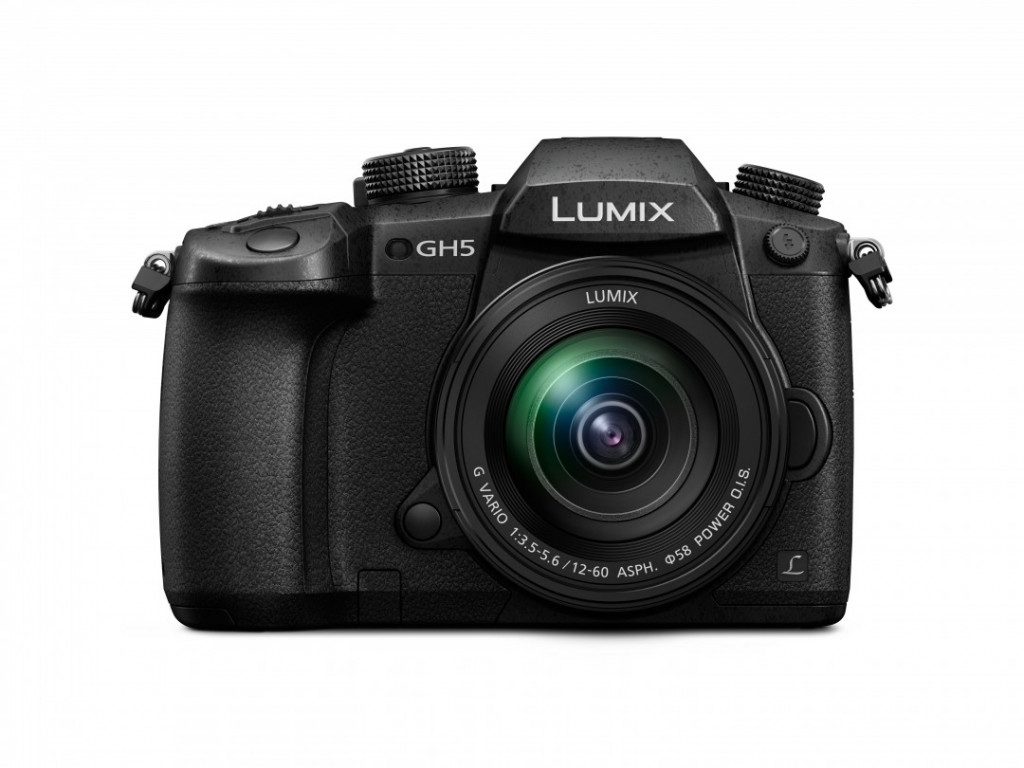
Initially, the beauty of the new GH5 [as someone who’s familiar with the GH4], is that you can pick it straight up and find a lot of familiarities. Lots of functions and tools are in the same places as its predecessor, with no immediate shocks, or buttons being in completely alien locations on the camera body. The OLED viewfinder gives a really vibrant image to the eye, due to the panel technology that’s built in and the 0.76x magnification delivers a huge image to the eye. The refresh rate is quick, which is essential for videographers, to avoid excess ghosting.
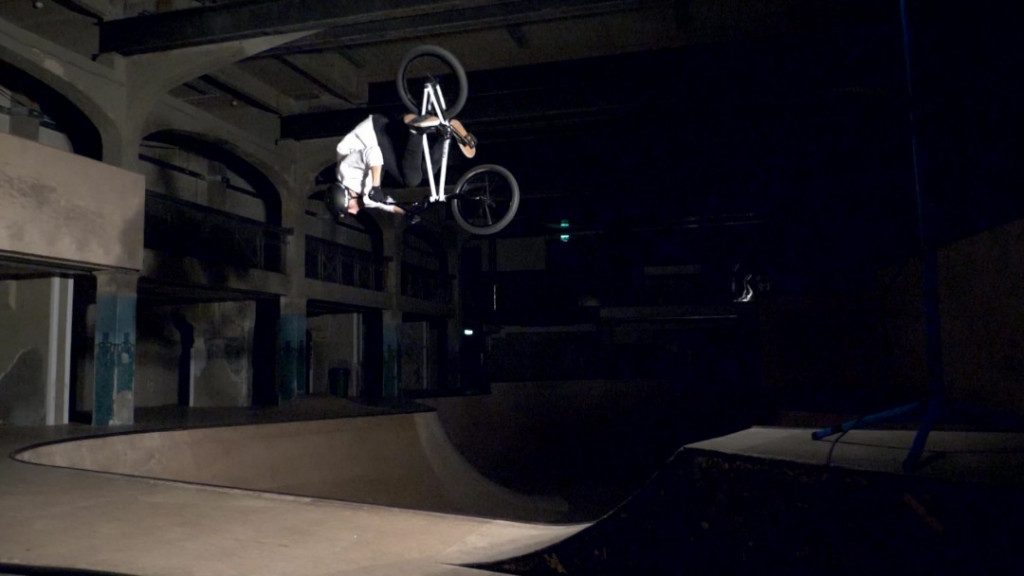
The [large] LCD screen on the back of the camera, weighs in at a full 3.2 inches. Is touch-sensitive and with a seriously impressive 1,620k-dot resolution to assure optimum detail in preview. There are new video modes and, of course, the 10Bit functionality, although unfortunately that’s locked to certain functions and not ‘open season’ for use in any mode. The twin SD slots are a real benefit for when you’re shooting in 4K and something that’s a welcome addition to the GH5.
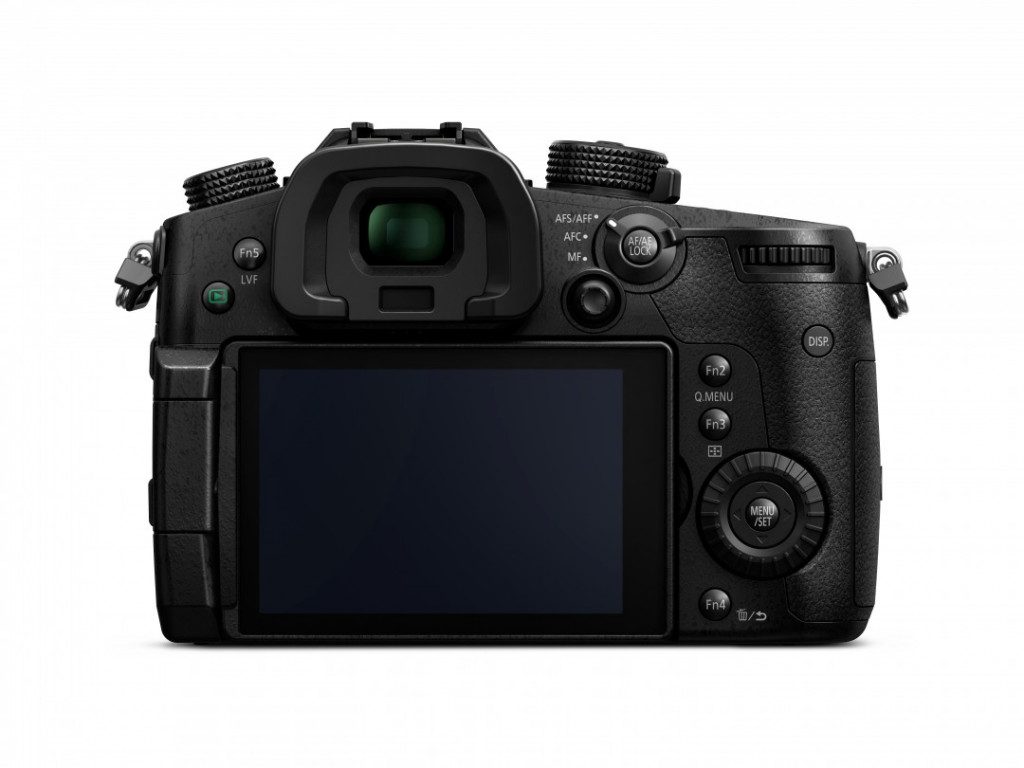
The 1080p seems to be hugely improved in the Gh5 and even after shooting in 4K, scaling back and then shooting in native 1080p, the difference is [almost] unnoticeable and really not worth the extra processing when that native is that good.
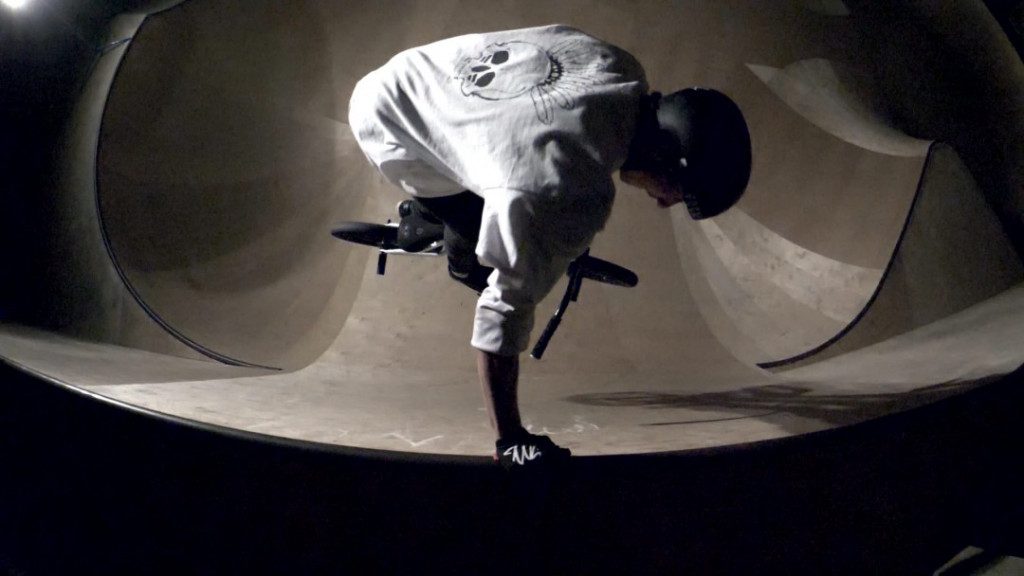
There are a greater number of higher quality settings in-camera now, with most of the lower settings [like the 50mb] having been done away with completely.
It seems that now, in the GH5, 100mb is the new minimum setting. Simon Skinner, Wing Commander at PhotoBite, said: It was such a great opportunity to push the GH5 to its limits. The guys at the Sourcepark were amazing and let us in after hours to have the place to ourselves, which really allowed us to play with the light and ultimately create the epic shots that you’ll see in the film. The final result is a thing of beauty. Those shadows! The sharpness of the slow-mo that comes from the GH5, and in practical darkness, is seriously impressive and Mark [Richards] showed us once again, just what a great filmmaker he is.

On the night in question, we found that the shutter speed wouldn’t drop below 1/200s when shooting in the new slo-mo mode which shoots at 180FPS, slowing the footage down to 14% normal speed. This limit isn’t ideal for shooting in low light. We’d killed all of the strip lighting in the venue to kill the horrendous and inevitable flicker and, in anticipation of the scenario, fetched the trusty tungstens that Mark had in the back of the van.
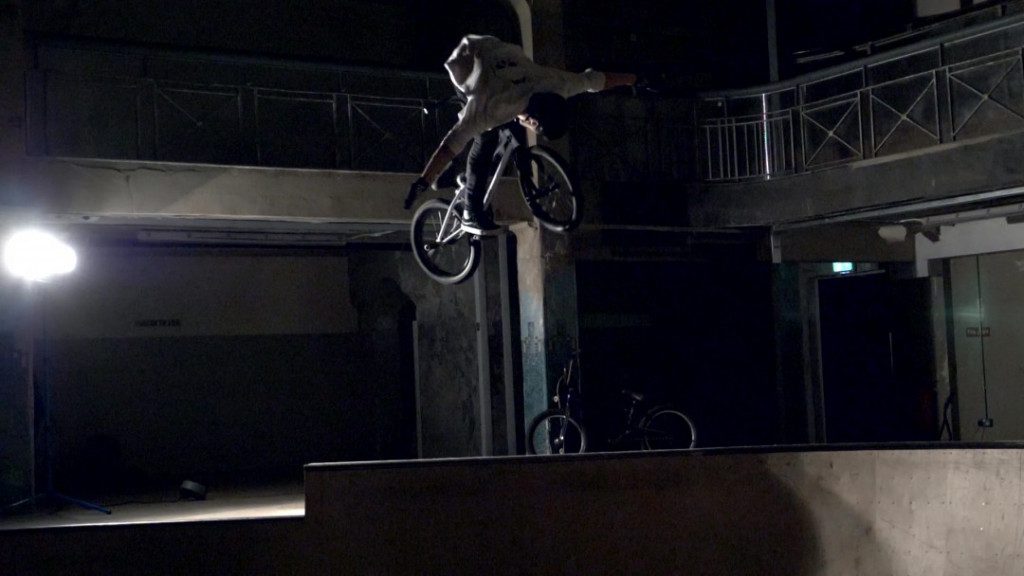
Being as we were indoors and in the dark, it caused us a few issues as we were really pushing the camera to places that it didn’t want to go. In all honesty though, what we ended up with is really impressive and the GH5 performed incredibly well. Having the extra level ISO on the GH5 gave us extra range and even though we didn’t go to the very extreme, we still pushed and the results are incredible. Well, see for yourself in the film!
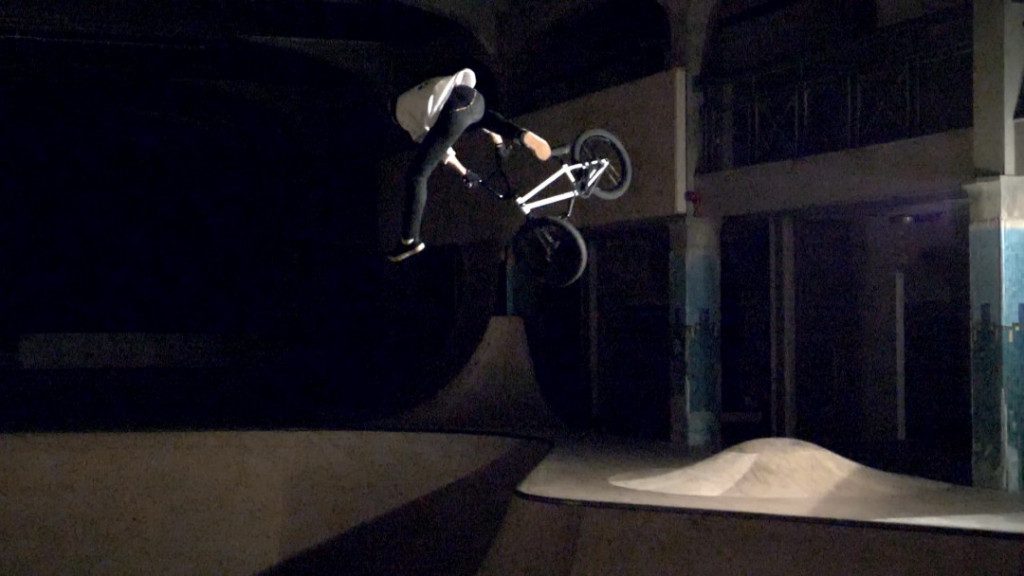
The big issue, that everyone seems to be talking about, autofocus in the GH5. It’s not quite the step onwards that we experienced from the GH2 to the GH3 and 4. Whereas most G-series cameras come with 45-point AF, the new GH5 exceeds this by some margin with a 225-point system. This, in basic terms, means smaller autofocus areas spread across the screen entire field of view for improved accuracy. You just have to stop and think for a second about what this little camera is doing and it’s mindblowing!
Step back a short time and 40K motion picture cameras were known to overheat due to shooting in 1080p With the GH5, we found we had some major auto focus issues and it seems that it’s a common issue when looking at various forums and feedback from other users. Especially when shooting in 4K. That said, It’s a dream when shooting in manual and even in auto-focus, if you preset your field, you’re laughing as the GH5 will deliver crisp images for you, time and again.
Those shooting video more seriously and frequently will likely have a rig setup to manually pull focus anyway. An electronic stabiliser mode can also be toggled on or off within the settings to sync with all lenses, while the native 5-axis stabilisation is available with selected lenses [the Leica DG 12-60mm f/2.8-4 as an example].
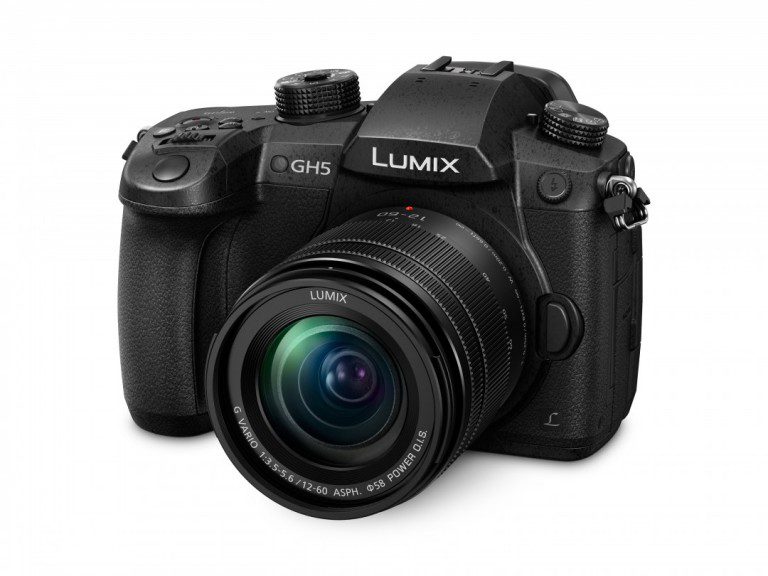
So overall, the GH5 is a really solid camera and one that rightly deserves its flagship title in the Lumix range. You just have to stop and think for a second about what this little camera is doing and it’s mindblowing! Step back a short time and 40K motion pictures were overheating due to shooting in 1080p! This camera doesn’t come close to that price point and even with a small number of limitations [in comparison], it really holds its own.
So, here it is. The PhotoBite, Panasonic Lumix GH5 test video in full
GH5 Pricing and availability
- The DC-GH5 is available now
- £1699 RRP
- Body only £1899 RRP
- Body & 12-60mm Lens [M Kit] £2199 RRP
- Body & Leica 12-60mm Lens [L Kit]
Big thanks to everyone involved, including: Jack Clark FacebookMark Richards and team PhotoBitemarkrok.comThe Sourcepark Hastingssourcebmx.comTall Order BMXtallorderbmx.comMuertosFacebookbandcamp


